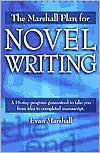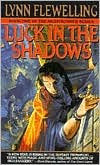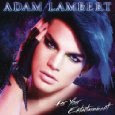I really appreciate the comments to my last post. It always makes my day when someone takes the time to post a comment. I get a lot of encouragement from that. I think it helps, just knowing there are others out there who are going through the same kinds of experiences in their own writing, and that I am not alone in this work.
With the summer weather, I have found it hard to devote as many hours to my writing as I did during the winter and spring. This past week, again, the work dwindled down to a nominal amount, which I really don't like to see. At least I am keeping at it as best I can under the circumstances.
I spent more time on Chapter 4, although I have not yet rewritten that reaction scene, and then several days on Chapter 5, which is very lengthy. I finally started making notes/corrections/changes on the hardcopy printout for Chapter 5. This is something I did a lot of in past years with other novels, and it felt very familiar to me. I agree that we see so much more and see it so much more clearly when we edit in hardcopy. I still like the idea of editing on the computer at first, but at some point it needs to be printed out and done the "old-fashioned" way. It does make a difference.
TIP: I put a checkmark in the upper right corner to indicate if there are any changes on a page. That way, when I'm hurrying through pages later to enter the changes into the computer, I don't miss a page if there is a minor change somewhere on the page that might not be so obvious.
I have now hit the threshhold where the existing draft begins to weaken. The first few chapters are very strong as written, but by Chapter 5 things begin to become bloated, or rambling, to some degree. Not really "rambling", with all that word implies. Perhaps "bloated" is better. A little too much attention given to some things that aren't really that important. Probably that was just my way of trying to find what was important, working through in detail, searching out the next significant moment. The editing thus far has been fairly superficial. I want to make those changes, print the chapter out again, then see what I can do to make it even tighter. Maybe I can knock out several thousand words, cut a minor scene or two.
It will only get more challenging as I continue from this point, since I know the later chapters were rough in comparison with the early chapters. Nonetheless, I do have a sense of what I want them to be, so I just have to keep that in mind as I go over things, and not be afraid to cut-cut-cut and chop-chop-chop and even rewrite a scene or two from time to time.
In the writing phase I found I would cycle between "I love this!" and "I hate this!" in regard to what I had written. In the editing phase, I think the same oscillations are occurring. It's hard to maintain objectivity. That's okay. I know how to "fly by my instruments" by now. I try to keep my focus on my vision of the finished product, which I see as being of good quality and worth reading for the reader.
Having never edited a full-length manuscript before, I'm just winging it. The book I've been referring to recently, THE MARSHALL PLAN, has been an excellent source of what not to do in prose. The author gives concrete examples of "beginner's prose" and what it should look like once edited. I have done fairly well overall, but there were a couple of patterns I used too much. They're easy to fix. One was use of the word "then" and the other involves too many "-ing" forms. Better to use "and" or just start another sentence, and to replace progressive forms with simple past tense verbs except where something really calls for "-ing".
Hypothetical Examples:
BEGINNERESE: He sat on the chair, frowning. / He sat on the chair then frowned.
IMPROVED WRITERESE: He sat on the chair and frowned.
BAD: He ate an apple, wondering what to do next, thinking of his lover, wanting to find a way out of all his troubles.
BETTER: He at an apple. He thought of Mark. [more specific example of a solution?] They could always return to Montreal.
One can argue the point, of course, but it makes a lot of sense, tightens things up. Also, getting rid of connectors and just jumping in, especially "began to" or "started to", "heard", "saw", etc.:
BAD: He looked out the window. He heard the sound of a bird chirping.
BETTER: He peered outside. A bird chirped.
BAD: He began to drink, then stopped and thought a moment about the weather.
BETTER: He drank. The weather was nice. Too nice. Maybe a storm was overdue.
Keeping at it....
Adrian








1 comment:
I edit a bit on the computer but always print out what I'm working on and edit by hand as well, especially for the early drafts. I just love my red pen and use that for editing so it's easy to spot where I've changed things. Actually I like editing a lot and when I'm stuck with the actual writing, I'll go back a re-read previous chapters. Never fail to find something that slipped by me the first/second or third time!
Post a Comment